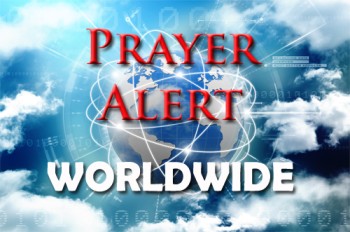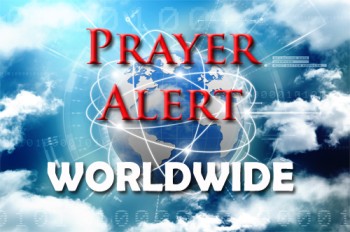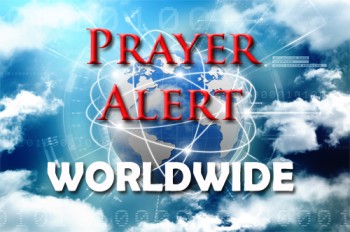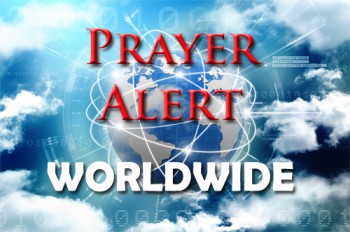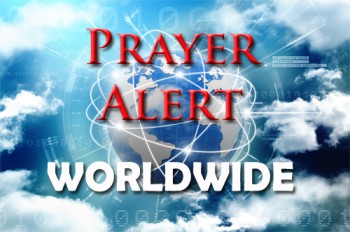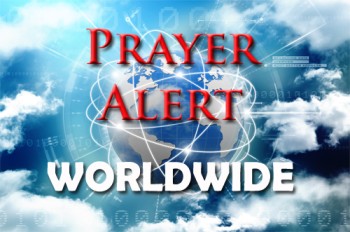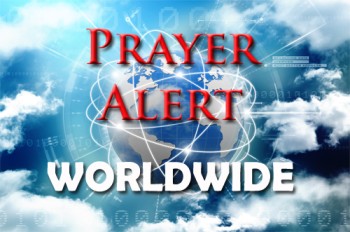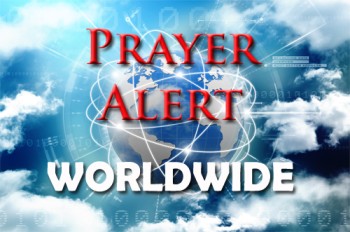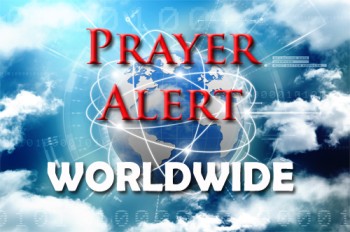Displaying items by tag: Colombia
Colombia: another church leader killed in targeted attack
A Colombian church leader has been killed in a targeted New Year’s Eve attack, highlighting renewed dangers facing pastors in the country. Pastor José Otoniel Ortega was shot repeatedly by armed attackers while celebrating with his family and later died from his injuries. Members of his congregation described him as a devoted servant who preached peace and lived out his faith with love. He is the eleventh church leader killed in Colombia since November 2024, according to CSW, which warns of rising hostility towards churches. Armed cartels often view pastors as threats because they oppose violence and illegal activity. CSW has urged the Colombian government to address the issue by offering additional protection to church leaders.
Colombia: president condemns US airstrikes on alleged drug-smuggling boats
Colombian president Gustavo Petro has condemned recent US airstrikes on alleged drug-smuggling boats in the Caribbean, calling them an ‘act of tyranny’ and urging criminal proceedings against US officials if Colombians were killed. The strikes, authorised by Donald Trump and reportedly responsible for 17 deaths this month, target vessels suspected of trafficking fentanyl and other narcotics, especially near Venezuela, Colombia’s neighbour. Legal experts and UN officials have questioned the legality of these actions, describing them as possible extrajudicial executions. Petro argued that deadly force is unnecessary, citing Colombia’s long history of cooperative drug interdictions without fatalities. He stressed that the principle of proportionality is violated ‘if you use anything more than a pistol’. The White House maintains that Trump will use ‘every element of American power’ to combat narcotics. He has designated several drug-trafficking organisations and criminal groups in Mexico and elsewhere in Latin America as terrorist organisations, and the US military has bolstered its forces in the southern Caribbean over the last two months.
Colombia: reversing the migration trend
In the coastal town of Necocli, migrant families are now returning south after failed attempts to enter the USA, marking a reversal of a once-dominant northward migration trend. Harsh immigration policies under Donald Trump, including the withdrawal of the asylum app and increased military presence along the border, have left many stranded in Mexico or deterred from even attempting the journey. Some, like Luis Angel Yagua Parra, braved the deadly Darién Gap only to be forced back. Others, including a Venezuelan couple whose child was born in the USA, have left voluntarily, fearing deportation. Aid workers in Necoclí report a growing daily influx of returnees, but dwindling foreign support has led to closures of humanitarian organisations. Pastor Jose Mendoza’s food hall, struggling to meet rising needs, might have to close due to a lack of funding. For families like Marisela Bellorin’s, who have been homeless for months, survival is precarious. As the ‘American dream’ fades, many migrants are choosing new destinations such as Chile, in search of safety and stability.
Colombia: 57 soldiers kidnapped in rebel area
57 Colombian soldiers have been seized by civilians and armed rebels in the Micay Canyon area, a vital cocaine-producing area in the southwest. The first group was captured on 21 June during an army operation in El Tambo; then another platoon was surrounded by roughly 200 residents near El Plateado. General Federico Alberto Mejía called the incidents a ‘kidnapping’ by rebels who infiltrate local communities, acting under the command of a FARC dissident group that refused the 2016 peace accord. President Gustavo Petro, committed to peace, announced that the release of the soldiers is ‘imperative’ as tensions rise. The government is struggling to regain control of rural areas as splintered armed groups move to dominate territories abandoned by FARC after the peace agreement. This crisis has reignited fears across Colombia, evoking memories of the bloody cartel violence and political assassinations which plagued the nation in the 1980s and 1990s.
Colombia: an alternative approach to fighting cocaine production
Colombia is pursuing a peaceful alternative to its enduring drug crisis by offering payments to farmers who agree to uproot coca (the plant used to make cocaine) and replace it with legal crops like cocoa and coffee. About 4,000 families have joined the $14.4 million programme, despite risks from armed groups that profit from cocaine and the uncertainty of sustaining income through legal farming. The government, under president Gustavo Petro, is aiming to eliminate coca from 45,000 hectares in conflict-heavy regions such as the Micay Canyon. However, since he took office in 2022 cocaine production has soared, driven by sustained demand worldwide, and his efforts to negotiate with armed groups, rather than using military confrontation, have faltered. Now the Trump administration is reassessing Colombia’s status as a partner in the anti-drug campaign, threatening to curtail millions of dollars in military aid.
Colombia: over 50,000 displaced by violence
A baby girl born in Tibu, Colombia, on 11 February was just five days old when her family fled violence, joining over 55,000 displaced by escalating conflict. FARC dissidents and the National Liberation Army (ELN) have clashed in Catatumbo since January, forcing families to abandon homes amid kidnappings and attacks. The UN calls it Colombia’s largest mass displacement from a single event. In Cucuta, 120 km away, displaced families face uncertainty. Aid efforts struggle with limited resources as shelters and local hotels fill up. Farmers have left crops and livestock, worsening food shortages. Meanwhile, the violence exposes flaws in president Gustavo Petro’s ‘total peace’ policy, as negotiations with rebel groups repeatedly collapse. The state’s slow response to building infrastructure and curbing the coca trade has fuelled instability, leaving thousands to wonder when they can return home.
Colombia: confrontation between Petro and Trump
When president Gustavo Petro blocked US deportation flights in protest of the treatment of migrants, Donald Trump at once threatened severe tariffs and revoked visas for Colombian officials. Petro initially resisted but ultimately relented, allowing deportation flights to resume. This misstep weakened his administration, leading to the Liberal Party’s exit from the coalition government and raising concerns over the country’s foreign policy. Petro’s presidency has faced internal and external challenges, including strained US relations over drug policy reforms and closer ties with Venezuela and Cuba. His confrontational stance, while appealing to his base, risks economic consequences. Experts argue that Colombia must develop a more strategic foreign policy beyond depending on the USA. The fallout from this crisis may shape Petro’s influence in the 2026 elections, as he seeks to position himself as a defender of national sovereignty amid political uncertainty.
Colombia: army deployed to counter gang warfare
Colombian special forces have been deployed to the conflict-ridden Catatumbo region to counter renewed violence between armed rebel groups, the National Liberation Army (ELN) and dissident factions of the Revolutionary Armed Forces of Colombia (FARC). The groups, vying for control of lucrative drug routes, have ended a truce, resulting in over 100 deaths and displacing more than 20,000 people. About a thousand refugees have fled to Venezuela, while others remain trapped or kidnapped amid the chaos. President Gustavo Petro has declared a state of emergency and suspended peace talks with the ELN, accusing them of war crimes. The Catatumbo region, producing 15% of Colombia's coca crop, remains a flashpoint for organised crime. The recent unrest revives memories of Colombia’s decades-long civil war, which claimed 450,000 lives. The UN has called for an immediate halt to the violence and protection for civilians, as military forces move to reestablish state control in affected areas.
Colombia offers legal status to 540,000 Venezuelans
Colombia’s migration agency has said it will give legal status to up to 540,000 Venezuelan migrants who are guardians to minors residing in the country. Colombia has been a destination of choice for millions of Venezuelans seeking to escape the political and economic turmoil of their homeland, while others have used the Andean country as a stepping stone onwards to other nations. More than 2.8 million Venezuelan migrants currently live there, and the measure will benefit adults taking care of some 270,000 minors who have permission to live there. The agency’s director said, ‘It's a special permission to stay, like the previous ones, which fundamentally seeks to integrate guardians, those people who have responsibility for minors who have a temporary protection permit and who live in Colombia’. In 2021, the then government said it would give ten-year legal status to Venezuelans living in Colombia, an offer taken up by many migrants.
Colombia: millions of displaced people long for peace
Consuelo Manyoma, a resident of San Isidro, waits anxiously for the time when her family can safely return home. Located along a strategic corridor for the cocaine trade, the village frequently experiences gunfire and threats. Two years ago, Manyoma's family and others fled, seeking refuge in Buenaventura. They are now in makeshift accommodation in a huge basketball stadium, enduring uncertainty and longing for peace. The country’s conflict, a bloody war between paramilitary groups, rebel militias, drug traffickers, and the army, has displaced 6.8 million people - one of the world's largest internally displaced populations. In another development, former president Alvaro Uribe is to face criminal charges for alleged links to some of the paramilitary groups: see

